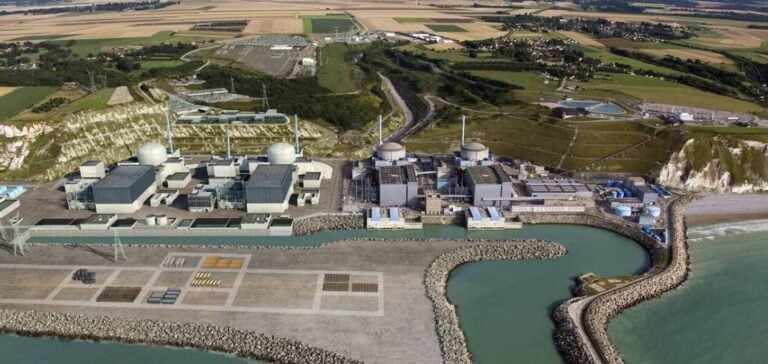The French government recently gave EDF the go-ahead to start preparatory work on the two EPR2 reactors planned for the Penly nuclear power plant in the Seine-Maritime region. This decision, formalized by a decree published on June 3, allows EDF to begin the necessary work on the site, including clearing brush and trees and relocating local flora and fauna.
Background and Details of the Work
The new environmental permit also allows for the creation of site facilities and earthworks, as well as improved access to the site and the creation of parking lots. The work will focus mainly on the Petit-Caux commune, as the site is partially artificialized and already has a low level of biodiversity due to previous industrial installations.
The decree emphasizes that this authorization minimizes environmental impacts due to the already industrialized nature of the site. The Interministerial Delegation for New Nuclear Power (DINN) stressed on LinkedIn the importance of this regulatory milestone for the Penly project, indicating that preparatory work will be spread over around 3.5 years, with a gradual start this summer.
Legislative framework and outlook
This authorization falls within the scope of the French Nuclear Acceleration Act of June 22, 2023, enabling preparatory work to be launched while the application for authorization to create future basic nuclear installations continues to be examined. Actual construction of the reactors will depend on final authorization.
In February 2022, President Emmanuel Macron announced a vast program to revive nuclear power in France, targeting the construction of at least six new-generation EPR2 reactors. The aim is to commission the first Penly reactor by 2035. The program is part of the country’s energy transition strategy, which aims to boost energy security while reducing carbon emissions.
Authorization of this preparatory work marks a crucial milestone in the construction of the EPR2 reactors at Penly. This step is part of a broader initiative to modernize and revitalize France’s nuclear fleet, in response to current energy and environmental challenges. Careful monitoring of this project and its impacts will be essential to ensure that it is completed on schedule and on budget.





















